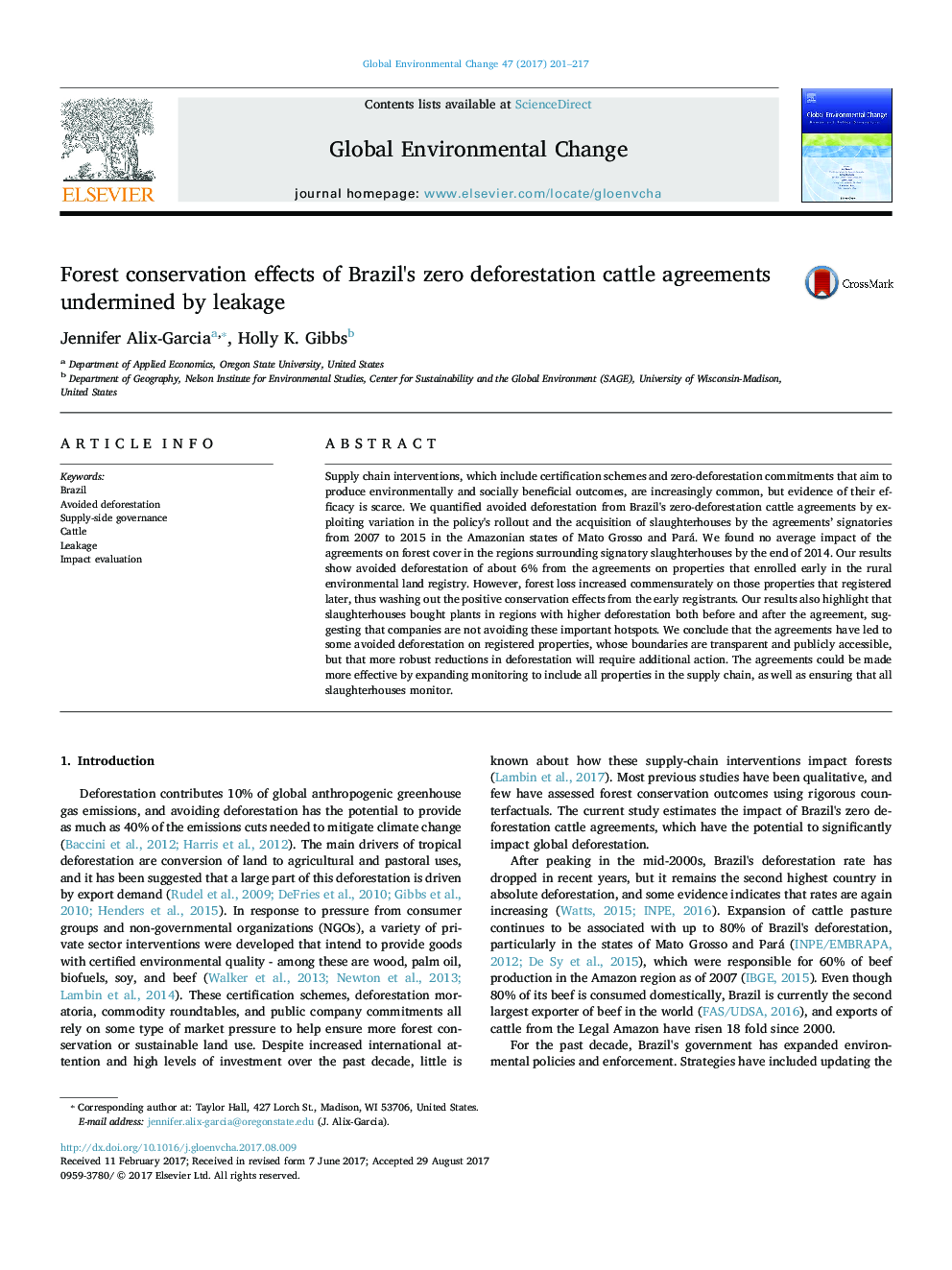| Article ID | Journal | Published Year | Pages | File Type |
|---|---|---|---|---|
| 7469183 | Global Environmental Change | 2017 | 17 Pages |
Abstract
Supply chain interventions, which include certification schemes and zero-deforestation commitments that aim to produce environmentally and socially beneficial outcomes, are increasingly common, but evidence of their efficacy is scarce. We quantified avoided deforestation from Brazil's zero-deforestation cattle agreements by exploiting variation in the policy's rollout and the acquisition of slaughterhouses by the agreements' signatories from 2007 to 2015 in the Amazonian states of Mato Grosso and Pará. We found no average impact of the agreements on forest cover in the regions surrounding signatory slaughterhouses by the end of 2014. Our results show avoided deforestation of about 6% from the agreements on properties that enrolled early in the rural environmental land registry. However, forest loss increased commensurately on those properties that registered later, thus washing out the positive conservation effects from the early registrants. Our results also highlight that slaughterhouses bought plants in regions with higher deforestation both before and after the agreement, suggesting that companies are not avoiding these important hotspots. We conclude that the agreements have led to some avoided deforestation on registered properties, whose boundaries are transparent and publicly accessible, but that more robust reductions in deforestation will require additional action. The agreements could be made more effective by expanding monitoring to include all properties in the supply chain, as well as ensuring that all slaughterhouses monitor.
Related Topics
Life Sciences
Environmental Science
Environmental Science (General)
Authors
Jennifer Alix-Garcia, Holly K. Gibbs,
